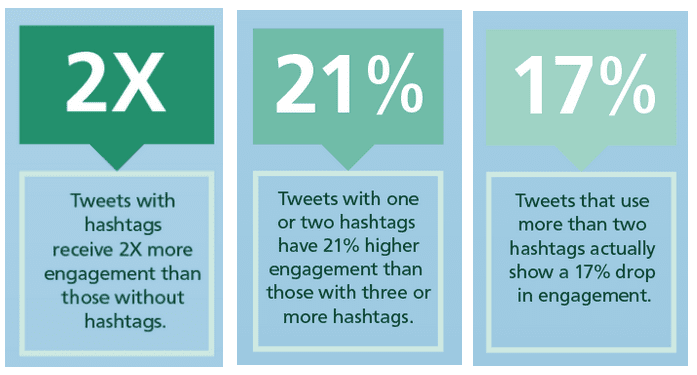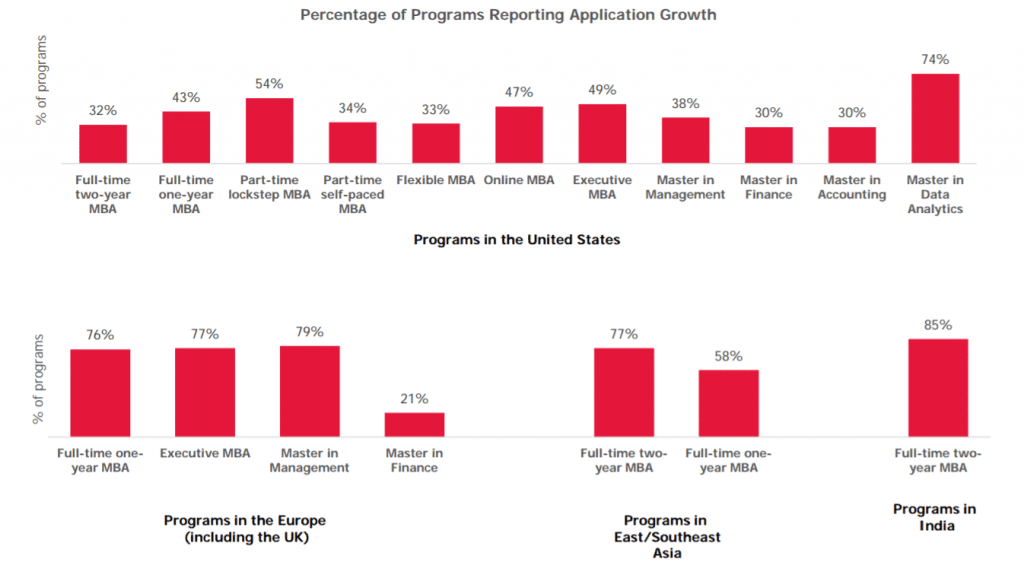The Secret to Writing a Successful MBA Career Goals Essay in 2018

The MBA application essay is still the most feared part of most applications. Whether you have to write 1,000 words or just 500, saying everything you need to say in a concise, intelligent, and appropriate manner isn’t easy for everyone. In fact, it can be incredibly frustrating. And while every school asks different essay questions, there’s one question you’re almost guaranteed to see, “What are your short-term and long-term post-MBA career coals and how will School X help you achieve these goals?”
The career goals essay is one of the most common and also most difficult essay questions. On the surface, it seems simple, but there’s a lot of work required if you want to wow the admissions committee (adcom). It all starts with the question.
Breaking Down the MBA Career Goals Essay
Before you can write your career goals essay, you have to break it down into digestible and answerable pieces. There are six pieces to the career goals essay that you’ll need to consider before you begin writing.
1. Where are you now?
Before you can talk about your goals, you have to know where you are now and so does the adcom. This means that your essay will need to concisely describe your current position so that you can better explain your goals.
2. What are you short-term goals?
Short-term and long-term goals are not the same. Short-term goals refer to your immediate plans after graduation. Is there a particular industry where you want to work? Do you have a job or promotion in mind? Where do you see yourself in the immediate months post-MBA?
3. What are your long-term goals?
Long-term goals take a little more thought. You might not be as specific about companies or job titles when talking about your long-term goals, but that doesn’t mean you shouldn’t have a plan. Think about where you want the MBA to take you in ten or twenty years.
4. Why will an MBA help?
Next, you need to discuss how an MBA will help you achieve both your short-term and long-term goals. You’ll need to discuss technical skills, analytical skills, focus areas, and more.
5. Why is the School vital?
You need to make your essay personal. Not just any MBA should work for your goals. You need to explain specifically why School X is vital to your success. Get as specific as possible.
6. Why now?
Finally, you need to discuss why NOW is the best time to get your MBA and pursue your goals. Make a case for why this year, this class, and this moment are vital to your life.
Writing the MBA Career Goals Essay
Now that you know all the components of the essay, it’s time to start writing. To successfully answer the question, there are a few things that you need to keep in mind.
Be Specific
You need to be as specific as possible when answering each of the six parts of the question. MBA adcoms want to see that you have a specific direction in mind and that you have valid reasons for your choices. If possible, you should be able to specify your preferred industry, job function, skills, ideal company, and more.
For example: Talk about how you want to move into a career in Finance and gain a job at Goldman Sachs. Then, talk about how the MBA will help you gain technical skills in Finance and Accounting as well as analytical skills in Corporate Strategy and Strategic Planning. Finally, discuss how the case competitions at School X, as well as the MBA Finance Club, will prepare you for this career field.
Be Realistic
Adcoms want you to dream big, but they also want you to be realistic. There’s nothing impressive about an MBA career goals essay that describes a future path that is unreachable or illogical. Unrealistic goals will not serve to demonstrate that you’re ready for an MBA. Instead, you need to walk the fine line between thinking big and demonstrating that your career path has been well thought out and planned. Look up hiring trends, services, organizations, market status, and competitive concerns within your desired industry and companies.
For example: It’s okay to talk about your goals of managing a billion dollars, but you should indicate that this is a long-term goal, and you have a plan to reach it. Go step-by-step to illustrate that you know what it takes to reach your high aspirations by first talking about starting as a Finance Manager and slowly working your way up over twenty years.
Be Genuine
Adcoms can smell BS. You have to convince them that you are genuine in your interest of not just the MBA but of earning an MBA from School X. Take time to do your research and dig deep for those specific offerings from the program that will best serve you and your goals. If you can name specific classes, on-campus impressions, or information you’ve learned from alumni to demonstrate your genuine desire for an MBA, you’ll be in a much better place.
For example: Set up an interview to talk with an adcom or alumni before you write your essay. Then, during that interview, ask questions that will give you the information you need to beef up your essay. If you can talk about how an alum took the same career path and succeeded, you not only demonstrate your interest but your keen intellect.
Be Clear
Finally, make sure you write an essay that is clear and easy to read. Don’t worry about crafting the next great American novel. Instead, focus on answering the question as simply as possible and including all the necessary pieces. This is not a creativity contest. Instead, create a simple outline that you can fill out to answer the six components of the essay.
For example: You should write out the six questions (career analysis, short-term goals, long-term goals, why MBA, why School, why now) and come up with your answers separately. Then, once you have the outline and all the pieces, compile them together into a cohesive story. Don’t try anything fancy.
Stay up to date with more of MetroMBA’s vital essay and admissions tips here.
What Is The Worst MBA Advice You Have Ever Heard?

The path to business school is paved with experts and know-nothing-know-it-alls alike—it’s just hard to tell the difference sometimes.
This is especially true when it comes to “dos” and “don’ts” of the trade. You’re bound to encounter confusing, conflicting, or just plain bad advice in any field but there’s something about business school that seems to attract meaningless jargon like flies to honey.
I spoke to Accepted’s Linda Abraham and North Star Admissions’ Karen Marks, two leading admissions counselors and bonafide MBA experts, about the eight worst pieces of advice most commonly doled out to MBAs-to-be.
“Tell them what they want to hear.”
“The admissions committee will see through it, the applicant will blend into the gray mass of applicants who are making the same mistake, and at competitive schools, will get dinged,” Abraham writes. “Telling schools what you think they want to hear means telling them what you don’t know, and it also means you’re not telling them what you want them to know.”
“If you are waitlisted, ignore the school’s directions and make a dramatic gesture to demonstrate your interest.”
According to Marks, “People … have been known to do everything from emailing the admissions office once a day (relatively benign, but inappropriate) to sending homemade gifts (creepy) to showing up in the admissions office and refusing to leave until they have spoken with the Dean. All of this backfires, it’s really important to listen to the school’s directions and express your interest in ways that underscore your ability to follow directions, and your understanding of the culture.”
“Change your career goals and personal story for each school.”
Marks explains, “Your goals and core narrative should remain constant, no matter what school you are applying to. Don’t tell Stanford that you want to work in micro-finance and Kellogg that you dream of marketing, just because you think it’s what they want to hear.”
Abraham recalls an interaction she had with “an applicant who came to us initially for Rejection Review.” This applicant was told by his consultant, a former Yale SOM adcom director, “she would have rejected him also because the applicant’s goal made no sense given his work experience, education and extra-curricular activities. He explained that his friends had told him to use the “hot” goal that year, so he used it in his application. Next year he applied with an authentic goal (and app) and was accepted to an M7 school.”
“You have no chance of getting into a top MBA program because you didn’t go to a top undergrad.”
Abraham couldn’t disagree more with this statement.
“If an applicant excelled at their local college, shows leadership, and has had an impactful career, and has a competitive test score, they have a chance at elite MBA programs,” she says.
“You have a 750-plus GMAT and a 3.9 GPA, you’re in anywhere.”
Both counselors call hogwash on this one.
“You can’t rest on academic laurels. Yes, those numbers are very attractive to top b-schools, but if they are combined with arrogance—forget it. Schools also want to see leadership and impact in their accepted students. So, if Super Student wasn’t a super employee or entrepreneur or campus community member, those stats do not guarantee acceptance at top MBA programs.”
“Your goals don’t really matter, because you’re likely to change them once at b-school.”
Abraham writes, “Yes, your goals are likely to change and schools know that, but they at least want you to start their program with direction and a goal they know they can help you achieve. Goals are a major component in fit at most top MBA programs. And if yours are vague or don’t match the strengths of your target schools, then you simply aren’t showing fit.”
“If you have a blind interview, you can wing it.”
“You can wing it. BUT you are unlikely to be as effective as the other applicants who prepare,” Abraham notes.
“They will have researched the school, know exactly why they want to attend this program, and mined their own experiences and achievements so they are ready to show they belong at the interviewing school and will contribute to the school’s student body and alumni network.”
“Oh, and they also have thoughtful questions to ask the interviewer.”
“You won’t get in if your numbers are below an arbitrary number, so don’t even bother applying.”
Abraham has worked with “multiple clients who had extremely low GMATs and GPAs, below 2.5 and below 600, who have been admitted to Wharton, Booth, HBS, etc. I also admitted applicants with weak numeric profiles to Tuck when I was the Associate Director of Admissions. (They had other stellar qualities).”
Abraham believes that “essays, personality, perspective and life experience are more important than numbers.” She adds, “Application reviews are comprehensive. One element is extremely unlikely to keep you out or carry you across the threshold of a dream MBA program.”
Admissions Tip: Round 1 Rejection Reflections

Last week a number of programs, including Wharton, Michigan Ross, and MIT Sloan, sent out interview invites to their Round 1 candidates. These invitations came on the heels of similar updates from the likes of Harvard Business School and Chicago Booth. As a result, many candidates are now diligently preparing for interviews, having made it to the next phase of a competitive admissions process.
Rejected Without Interview
Of course, we recognize that not all applicants are so fortunate. And since we’ve published a great deal of content on interview prep of late, we’re turning the tables and dedicating this week’s admissions tip to those of you who haven’t moved forward.
The interview invite stage for Round 1 is the first signal as to your potential for attending a leading business school, and for a few, it can be a rude awakening.
If you have not yet received any good news, despite submitting applications in Round 1, you’ll want to read this post very carefully.
Reconfiguring Following Rejection
If there is any good news when it comes to being rejected in the first round, it’s that it’s still early in the application season, and not too late to readjust your strategy and target appropriate programs for Round 2. Round 2 application deadlines generally fall in the first couple of weeks of January, which leaves a little more than two months to prepare a new set of applications. It is also often the case, that your first applications are not the strongest. You learn through this process, and could potentially submit stronger applications for Round 2. Or it might be the case that you need to re-evaluate your goals, and then target a new set of programs that are appropriate for those goals. You could also adjust the competitiveness of the programs you target. So if you struck at all of your R1 targets, you may need to shift your target to slightly lower ranked programs.
Rejection Reflection
You also might want to take a hard look at what the schools which chose not to interview you, might have found lacking. If it’s your GMAT score, you have two months to try to remedy it. If you failed to make a compelling case for the degree or to properly showcase your experience in your essays, it might be a good time to get a fresh perspective from a third party on your materials. If your recommendations may have been lacking, speak with your writers or seek out new colleagues who might be able to better support your candidacy.
Of course, if there isn’t something as tangible as a poor test score, shoddy essays, or subpar letters of recommendation, you may need to take a longer view. For instance, if you lack professional experience, leadership accomplishments, or outside activities, it might make sense to delay your MBA ambitions, and reapply in a following year. Reapplicants are generally looked upon favourably in the admissions process.
MBA Motivations
Finally, you might want to reassess whether the MBA is the right next step for you. Perhaps the admissions committees are doing you a favor, and nudging you in a different direction.
Chin Up!
There’s no doubt that receiving negative results can be painful, but it’s how you handle the situation that will determine your future. Don’t lose site of the fact that news of rejection(s) is actually useful feedback in a process that can be quite opaque. Take the feedback to heart, regroup, reassess, and devise a plan to help you reach your goals.
This article has been edited and republished with permissions from Clear Admit.
Admissions Tip: Top 5 MBA Interview Questions

Interviews, interviews, interviews … it’s all anyone seems to be talking about these days, and with good reason. Wharton is scheduled to release its interview decisions tomorrow, Harvard Business School has already sent its invitations out, as have many other top schools.
Instead of driving yourself crazy with worry, why not buckle down and perfect your answers to the questions you are most likely to be asked? To help you prepare, Clear Admit has prepared Interview Guides and Interview Archive to compile its very own Top Five list of the questions that most often make their way into MBA admissions interviews at leading schools.
While these refer primarily to questions asked as part of blind interviews, they can certainly also come up as part of non-blind interviews. In those cases, you’ll want to be prepared to go deeper into some of the specific experiences you shared in your application. For a quick refresher on the difference between blind and non-blind interviews, click here.
For detailed insights into each school’s interview process, the questions they ask, and how to tackle those questions, access Clear Admit’s Interview Guides.
Top Five MBA Admissions Interview Questions
Walk me through your résumé.
The real trick with answering this open-ended question is to gauge how much detail is too much. Imposing a structure can help. “It’s best to err on the side of brevity,” says Alex Brown, who asked this very question of many hopeful Wharton applicants during his time working in admissions at the Philadelphia school. “Think of this résumé walk-through as simply laying the groundwork for deeper discussion of your background and accomplishments.” A good idea is to develop a two- to three-minute run-through, beginning with where you grew up and went to college, what you studied and perhaps something you enjoy outside of work. Then move into a concise overview of your work experience, beginning with your first job and continuing to present day, making sure to explain why you made the choices you did and what you learned in each major role. “This kind of high-level overview gives your interviewer the perfect opportunity to ask for more detail about specific points if she wants it,” Brown says. If you have a gap of three or more months due to unemployment or some other cause, you should be prepared to address it, Brown warns, although in a short résumé question as part of the interview, it may not come up.
What are your career goals?
With any luck, you will already have a well-honed response to this question, developed and refined as part of the process of writing your application essays. “If you are looking to shift industry or function, this is your chance to explain your reasoning and that you have carefully thought through what may be involved in successfully making the transition,” Brown says. Keep in mind why the adcom is asking this question, Brown suggests. “They want to know how focused you are on the MBA and whether you are in a position to take advantage of the resources business school offers or at risk of getting overwhelmed,” he says. Present a very clear post-MBA goal, Brown recommends. “Schools prefer to admit students who can explain exactly what kind of job they want to pursue beyond graduation and articulate how it will set them up to obtain their long-term career objectives,” he says. Schools are also looking, with this question, to see if your goals make sense and are feasible in light of your past experiences; are you able to articulate a clear path and plan?
YOU MAY ALSO LIKE: No GMAT, No Problem
Why X school?
Here, schools want to see if you have really done your research on their program and whether you are a good fit with their culture. So, do your research. “I recommend a three-pronged approach to make a truly compelling case for your interest in a given school,” Brown says. Start with academics, he says, naming specific courses and professors that you are interested in. “Remember, your interviewer wants to see that you have really researched the school.” Second, mention specific clubs, conferences and other special programs that will help position you for your career goals. “Even better, show how you would contribute to the school community, such as by organizing an event to share specific knowledge you bring with your future classmates,” Brown suggests. Third, show that you have a good understanding of the school’s community, culture, class size and location and have thought about how these fit with your personality, goals and background. “If you have visited campus or talked with current students or alumni—definitely say so, lead with this.” Brown stresses. “Beyond showing that you’ve invested time in getting to know the school, this also helps your interviewer have a mental picture of you on campus.” he says.
Give us an example of a time you took a leadership role.
The way interviewers ask this question can vary—sometimes you’ll be asked directly about your most notable leadership experience and other times you’ll be invited to describe your general leadership style. “It’s important to keep a few basic principles about leadership in mind,” Brown says. “A leader is someone who has a strong vision or point of view and is able to see things others are not,” he continues. A leader must also have excellent communication skills. Choose an example that demonstrates these points. An ideal leadership example will describe a time when you negotiated with and persuaded key stakeholders, such as clients or a supervisor, to buy into your vision and then delegated the work and managed colleagues or juniors. “If you encountered obstacles along the way, share how you dealt with them,” Brown says. “If possible, you should also show success through quantified results,” he adds. As important as a successful outcome is demonstrating how you drew on the help of others where necessary. “No one is successful on their own,” Brown says. Show that you understand that strong leadership means teamwork and playing well with others, he says.
Tell us about a time you failed.
As tempting as it may be to say that you’ve never failed at anything…that is not what that adcom is looking for here. “In fact, this is a favorite question for those who appear to be ‘rock stars’ on paper,” Brown says. But rock stars make mistakes, and having an example in your back pocket of a time things did not go according to plan can show humility as well as your capacity to learn and grow. “The best answer to this type of question ends with a more recent experience where you took the lesson you learned from the failure and put it into play, affecting a better outcome.” he says.
These five questions certainly don’t cover everything your interviewer is likely to ask you, but they do touch upon some of the things you’re most likely to be called upon to share as part of your MBA admissions interview. You can take some of the anxiety out of the interview process by giving each one some thought, drawing on some relevant experiences from your past, and practicing the responses you would give. Don’t practice too much so that you appear overly rehearsed—since it’s important to seem both authentic and genuine—but prepare enough so that you’ll be ready to truly put your best self forward.
This article has been edited and republished with permissions from Clear Admit.
Social Media Do’s and Don’ts MBAs Need To Know

Social media can be an impossibly powerful tool. It is the president’s favorite method of communication, after all. Social media can also determine the future for MBA applicants and candidates.
For better or for worse.
U.S. News & World Report found that 35 percent officers interviewed do check out applicants’ social media accounts. What they find might increase a person’s chance of getting in—or could diminish it. Social media could say a lot about a person that may not be clear in an essay or recommendation letter. So why would school’s not at least be safe and check it out?
“To be clear, the large majority of admissions officers do not visit applicants’ social media sites,” Yariv Alpher, Executive Director of Research at Kaplan Test Prep, said. “However, a meaningful number do, as many note that social media can provide a more authentic and holistic view of applicants beyond the polished applications. And in fact, past Kaplan surveys have shown that a majority of students themselves consider their social networking sites to be ‘fair game’ for admissions officers.”
Well, that means applicants and even students must be really intentional—and careful—about how they use platforms like Facebook, Twitter, or Instagram. Otherwise, they could be looking at revoked acceptances or even long-term suspensions.
There is a science to the art of social media postings. And we’ve got you.
Do
Share achievements and wins. Let’s say you’re set to speak on a panel next week; you should tweet about it. Let the world know to be there. When you do speak, make sure someone takes a pic—and share it. Flaunt your accomplishments while staying humble. New job? Let the Internet know. Published a research article? Inform people.
Don’t
Publicize how you celebrate said achievement. Well, unless that celebration is PG. Even then, though, not everything needs to be broadcast to the world, especially if it involves alcohol. Too many college students or teenagers share photos of them on a night out, but that could be a turn off to admissions officers. So unless you’re sharing a cocktail with a celebrity or business goddess, maybe save the photo for family albums, instead.
READ THIS: Wharton MBAs Will Get You Out Of The Social Media Bubble
Do
Be yourself. You want to stay true to you and be an authentic presence online. There are enough imposters acting as a better version of themselves. And sometimes, it’s just too obvious. So let your posts breathe and let officers get a sense of who you are when they take a look at your social media pages. Maybe that means having an inspirational quote in your bio. Whether it’s Kanye West or Steve Jobs says a lot about who you are. And officers should appreciate that.
Don’t
Be reckless about the version of yourself you show. You gotta’ keep it real, but be mindful about what sides of yourself you showcase, too. A cuss word here or there shouldn’t keep a future school or employer from viewing you negatively, but racist or insensitive language would (and should). Certain behavior and ideology are unacceptable, and if that’s how you’re thinking, you need to take a hard look at yourself.
Do
Brand yourself. Ain’t nothing wrong with whipping up a logo and showcasing it online. Or launching a website that you flaunt on your Facebook page. You want schools to know that you’re already business-savvy and show them that you recognize your most valuable business: yourself. Branding yourself through a clever Twitter handle or website domain is a start. Think color schemes and photos. All the pieces of your page speak more than you think, so work them marketing skills.
Don’t
Use that as reason to steal someone else’s work. If you’re going to whip up a logo, make sure you take the right steps to do so—and mention it in a cover letter or somewhere a school will find out. Don’t copy and paste images or use someone else’s. If you show admissions officers you already know how to operate social media and digital skills within legal boundaries, they’ll be even more impressed. Be sure that you take proper steps to legally share images too. You want to sprinkle up your feed with photography (y’know, let them know you’re sophisticated), but don’t just take from a Google search. That can be illegal. Plus, you want to show off that you know about image sharing sites like Flickr or Getty. You’re a business person, remember?
Do
Use hashtags. Schools want students who are with the times. Hashtags are a major part of this time. Remind them that you know when to use them. This will also help others find you if your page is public, so for Twitter, that could mean more followers. On Facebook, that could mean more engagement on posts.
Learning from the hashtag experts could be really beneficial to your overall online presence, despite the cliche connotations. According to Buffer, simple use can greatly increase exposure.

Data via Buffer/Buddy Media
Don’t
Be hashtag-excessive. #EveryLittleThingDoesntNeedAHashtag. Just use relevant hashtags and don’t scare away a school with them. #Please.
Update: Listen to the new “How to Maintain Your Social and Professional Connections” podcast from the Kellogg School of Management for a more in depth perspective.
U.S. Small School MBA Programs are Shrinking

Large U.S. graduate business programs—those with more than 200 students—report that times are good. In fact, three in four (73 percent) of these programs saw application volume increase this year, according to the 2017 Application Trends Survey, released yesterday by the Graduate Management Admission Council (GMAC).
But the news is not as rosy for smaller programs. For programs that count 50 students or fewer, only 39 percent saw growth in application volume, while 7 percent remained steady, and 55 percent lost applicants year over year. Overall, among full-time, two-year MBA programs, less than a third (32 percent) of U.S. programs reported application volume gains this year, whereas 64 percent saw application volume decreases. The results mark the third consecutive year in which the majority of U.S. full-time, two-year MBA programs experienced application volume declines. Just three short years ago, those numbers were almost reversed, with 61 percent of U.S. programs reporting application volume increases in 2014.
Elsewhere in the world—including in Europe, East and Southeast Asia, and India—business schools had a very different story to tell. In each of these regions, the vast majority of programs saw application volume increases. In Europe, 76 percent of one-year, full-time MBA programs saw growth; in East and Southeast Asia, 77 percent of full-time, two-year MBA programs saw growth; and in India, 85 percent of full-time, two-year MBA programs reported increased application volume.

Source: 2017 GMAC Application Trends Survey
A Combination of Factors Chills Overall Demand for U.S. Graduate Business Programs
What gives? Why are business schools around the world seeing such demand for their programs while U.S. schools—with the exception of the largest, best-known schools—faltering?
“Demand for graduate business education remains strong, especially among the largest programs, which also tend to be the most well-known programs with brand recognition,” Sangeet Chowfla, GMAC President and CEO, said in a press release. “While non-U.S. programs are thriving, a strong economy and a disruptive political climate are likely contributing to the downward trend in application volumes among smaller U.S. programs this year.”
Strong Economy Hurts Domestic Application Volume
Citing past GMAC research, the current GMAC report notes that application volume to U.S. graduate business programs frequently runs counter-cyclical to the labor market. When jobs are plentiful, fewer see the need or can justify the opportunity cost of taking time out of the workforce to pursue an advanced degree. This could help explain why only 42 percent of U.S. programs reported growth in the domestic market this year, down from 61 percent in 2016. Exceptions to this trend can be seen in two degree programs, though, according to GMAC. Domestic application volumes grew for more than half of all full-time, one-year MBA programs (54 percent) and Master’s in Data Analytics programs (58 percent).
Trump Rhetoric Takes a Toll on International Applicant Volume
More notable than the decline in domestic applicant volume was the decline in international applicant volume for U.S. programs. Less than a third (32 percent) of U.S. programs saw more international applicants this year than last—down from 49 percent the year before. Master in Data Analytics programs proved the only exception—67 percent of these in-demand programs saw international applications increase.
In fact, for the bigger, better-known U.S. schools that have been largely buffered from overall application volume decline, it’s because domestic applicants have applied in increasing numbers at those schools, offsetting declines in international applicants. According to GMAC, there has been a resurgence of domestic applicants at large programs, with 69 percent reporting increases in this applicant pool this year over last. Of these same programs, only 38 percent saw international application volume increase.
READ MORE: What are the Most Common Application Mistakes?
Other regions of the world, meanwhile, may be attracting some of the international applicants that have been giving U.S. programs a wider berth given concerns about potential changes to immigration policies and their impact on visas both for study and for work. According to this latest GMAC survey, twice as many graduate business programs in Europe and Canada saw international application volume increases as did programs in the United States. In Canada, 77 percent of programs reported upticks in international applicants, up from 46 percent in 2016. In Europe, 67 percent of programs saw international application volume growth, a more modest rise over the 65 percent reported there the year before. But even in the United Kingdom, where there was concern that the 2016 Brexit referendum could adversely impact international applicants in some of the same ways that Trump’s election and proposed changes to immigration policy did in the United States, almost two-thirds of programs have wooed more international applicants, not fewer. Notably, graduate business programs depend more heavily on international applicants than on domestic applicants, In Canada, domestic applicants comprised 30 percent of overall applicant volume, and in Europe, just 11 percent.
Women Are Applying to Graduate Business Programs at Record Levels
Another significant finding from the 2017 Application Trends Survey was an increase in women applicants. Women now represent 42 percent of all applications received by the participating programs, up from 37 percent from four years ago. Looking specifically at MBA programs, women accounted for 39 percent of applications, a six-point percentage gain since 2013.
Growth in female application volume was most widespread among MBA programs—44 percent saw increases this year over last. Fewer business master’s programs—39 percent—reported increased female applicant volume.
Additional Key Findings
A few other interesting statistics revealed by the most recent survey:
- Overall part-time MBA volume has declined or remained stagnant since the Great Recession. The only exception is part-time lockstep programs, which enroll students in cohorts and provide more of a consistent set of classmates. Of these, 54 percent reported a growth in applications.
- Employer sponsorship remained stable, with approximately 52 percent of part-time students expecting to receive support.
- The experience level of applicants also remained consistent, with the majority of full-time MBA applicants having between three and 10 years of prior work experience.
The Application Trends Survey 2017 reviewed a total of 351 business schools around the global and 965 total graduate business programs—a record for the survey. To see the full results, download the 41-page report.
